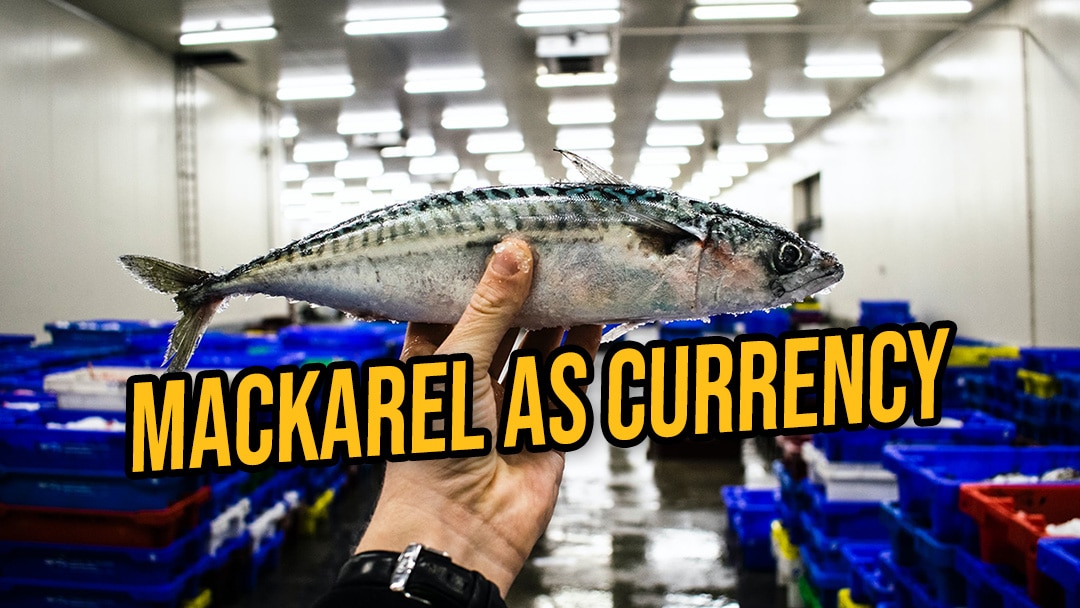
20 Jun Mackerel as Currency: A Retrospective Analysis
Mackerel as a Means of Currency Among the Incarcerated: A Retrospective Analysis
Inmates are never short on creative ideas and they’ve created many solutions to the lack of cash in prison. Most compounds use stamps as a form of currency. Universally accepted, inflation protected, and easy to store and transport. Inmates at Yankton use mackerel. Technically speaking, it is cleaner than money and far more edible. One pouch of mackerel, a mack pack as it’s called, contains 3oz of fish packaged in soybean oil. Valued at $1, it looks eerily similar to a pouch of cat food in serving size and aesthetics.
Once you get over the taste of soybean oil and the mackerel itself, you grow a fondness for the fish of the incarcerated. You shouldn’t leave prison until you’ve eaten at least several pounds of it and can feel the soybean oil coursing through your veins. Inmate goals: participate in productive activities, pursue evidence based recidivism reduction programming, maintain a record of clear conduct and eat a sufficient amount of oil soaked fish.
Today, we are going to examine this monetary fish through the filter of three factors which are commonly used to assess the viability of a form of currency – medium of exchange, store of value, and unit of account.
Mackerel swimmingly meets all three. It is a universally accepted (in this small universe) medium of exchange. All parties participating in the market accept macks.
In regards to store of value, mack packs have an expiration date that is, on average, two years and three months from the date of purchase, making them reasonable as a store of value that is edible yet unlikely to spoil. For years they sold at commissary for $1.00 but recent inflationary pressures felt nationwide have bumped the commissary list price up to $1.10. On the other hand, the exchange rate finds it’s low end at $0.80 per pack. I can’t picture many other markets where changing your currency results in a 20% hit, unless maybe you’re in Venezuela as the value of the Bolivar is nose diving due to hyper inflation.
While the exchange rate is far from ideal, this is possibly negated by the fact that you can simply eat your mackerel and avoid exchanging them. However, if you want to convert your macks back to “cash” (ie: other commissary items) this is the cost of business.
Unlike people with excess dollar bills, those who find themselves with too many macks aren’t as fond of them for reasons beyond the exchange rates. The storage concern for stamps are non-existent. For mack packs, space may become an issue. If a participant in this market has so many he finds himself needing to rent space in another inmates locker, those macks are further devalued.
Unit of account is clear cut. When bartering, the mack pack is valued at $1.00. Free-market mackerel has yet to catch up with the $1.10 inflation affected price at commissary. The small variance in price hasn’t sent shockwaves through the micro-economy here and we see that trend of acceptance continuing, although it’s made for several spirited economic debates that quickly spiral out of control. In trade, the person accepting an offer and being paid in macks has more leverage. The market participant being approached is highly unlikely to part with anything valued beyond a flat $1.00 for each pack.
This leads us to a broader market question: is the prison community market more viable because the underlying commodity has a higher perceived value to a group of inmates who lift weights and seek a consistent protein source of at least moderate quality? The constant demand for protein is potentially what stabilizes the value of mackerel and makes it a reasonable currency.
One may ask, why do inmates need money/currency? We’ve determined there are five categories of commerce in which one would utilize a non-cash based currency: hustles, food services, personal services, gambling and the procurement of goods.
Hustles: laundry service, room cleaning/floor buffing, ironing clothes
Food services: purchasing slices of cheesecake or peanut butter pie, stromboli’s, burritos, pizza bagels, etc
Personal services: haircuts, beard trimming or assistance addressing legal matters
Gambling: card games and sports tickets
Buying Goods: used watches, old boots, beat up shoes, beard trimmers, or sunglasses
Lingo: “You’re wrong, I’ll bet you a mack on it” “Two macks for a piece of peanut butter pie” “Let’s bet a mack on this UFC fight”
No wallets required, as one convenient aspect of incarceration is you’re never more than 5 minutes away from everything you own. Just don’t take too long to pay up.

